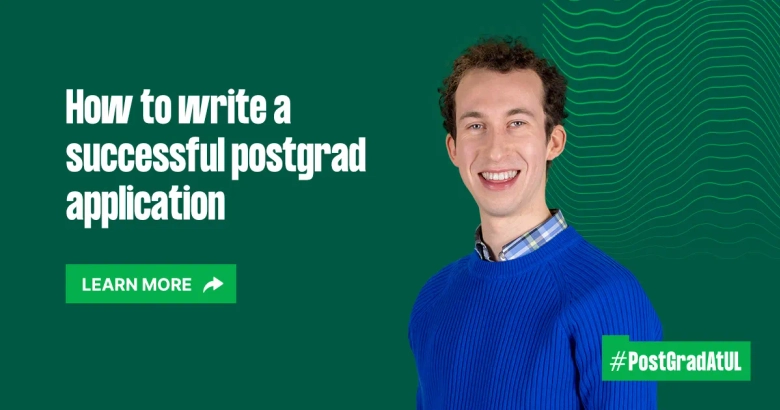UL - How to write a successful postgrad application
Last updated: 25 Jan 2023, 13:34
With so much competition for places on postgraduate courses, your application is crucial to getting accepted on the course. Here are some insider tips on how to make your application stand out and make sure you get on the educational track to fulfilling your dreams.

